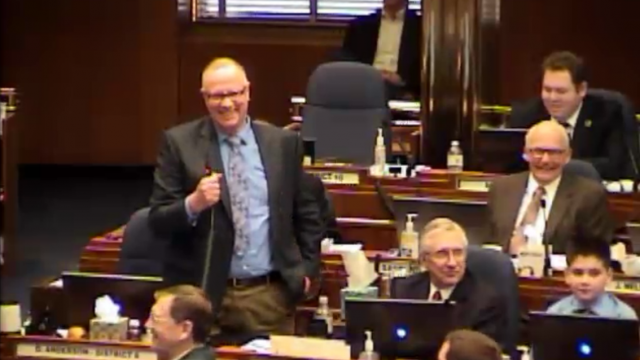Should Non-Resident Property Owners Get A Vote? ND House Says No

HB1383 was introduced by Rep. Dick Anderson (R-Willow City) and would have allowed “freeholders” (a term clarified during the floor debate to mean specifically “property owners”) who are not residents of a school district vote in that district’s bond elections. It is sort of a zany idea I wrote about a week ago.
It failed on a 12-78 vote.
During the floor debate Rep. Anderson said he had introduced the legislation at the behest of a constituent who is frustrated about taxes going up on property he owns in places where he’s not allowed to vote. Rep. Mike Brandenberg (R-Edgeley) rose to express similar frustration but admitted that the legislation probably wasn’t the best fix for the problem.
“This issue needs to be addressed,” he sad. “Maybe this isn’t the best way to address it.”
The most compelling argument against the measure came from Rep. Jerry Kelsh (D-Fullerton) who described the logistical nightmare we’d create by approving this sort of legislation. What if a piece of property is owned by multiple owners? What if it is owned by a corporation? Do all of the stockholders get a vote? Often bond elections are combined with other elections, how do we prevent property owners from casting a ballot for, say, mayor? How are we going to prepare election workers to verify property ownership and identity to ensure that we don’t have fraudulent votes?
I agree with Anderson and Brandenberg that there is something unfair about taxation without representation. After all, that gripe was at the heart of the American revolution. But there has to be a better solution to the problem than this.




